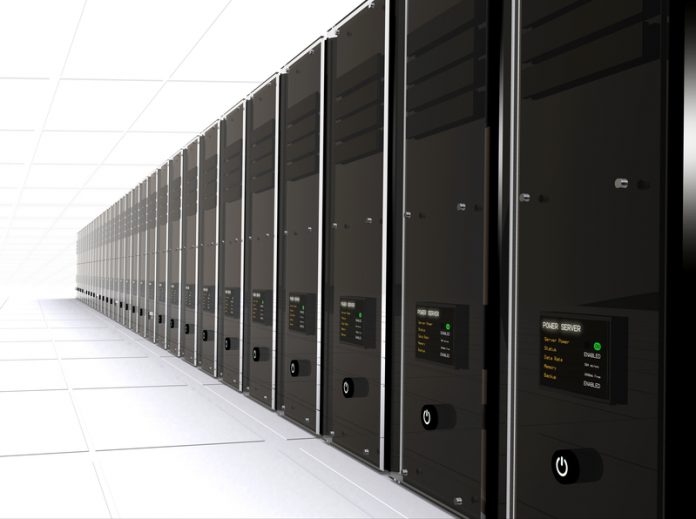Jean-Christophe Desplat, Director at the Irish Centre for High-End Computing (ICHEC) explains the benefits of high-performance computing…
High-performance computing (HPC) has emerged as a key platform technology of modern times. Its ability to boost performance and speed is transforming domains such as energy exploration, environmental monitoring, next-generation computing and medical devices, to name but a few.
People often assume that HPC simply means supercomputers, but supercomputing is just one aspect, and the growth of cloud computing will make HPC services more readily available.
High-performance = high-power
HPC lets us make better use of big data and computer modelling. Practical outputs include more accurate weather forecasts to help mitigate the deadly impacts of extreme weather events, and HPC will underpin the emerging Internet of Things and decision-making in the increasingly interconnected digital economy and the Digital Single Market.
This power has not gone unnoticed, the European Commission now regards HPC as essential for innovation, growth and jobs[1] and its impact, both societal and economic, is gaining widespread recognition with leading policy-makers such as the Commissioner for Digital Economy & Society, Günther Oettinger. Through the planned European Open Science Cloud, Europe is putting in place infrastructure to ensure it participates in the global race for high-performance computing.
There are plenty of reasons why HPC can boost productivity and innovation. It performs at speed and it increases energy efficiency, which means we can do more in less time with less power. It enables upscaling, high-throughput and handling of larger datasets, problems and models, and we can process large volumes of data in near real-time, which is critical for financial services, telecoms and harnessing satellite imagery.
Ireland: small country, big ambitions for HPC
The Irish Centre for High-End Computing (ICHEC) provides the National HPC Service to academia in Ireland. Through academic and industrial R&D collaboration it has already supported more 1,400 researchers across sectors including high-resolution weather forecasting, bioinformatics, oil & gas exploration and remote observation for precision agriculture and land planning.
ICHEC’s strength comes from its human capital and its expert technologists, which place Ireland at the forefront of HPC-enabled innovation. This expertise allows ICHEC to engage in high profile R&D collaborations with leading companies as part of its industry engagement programme.
So where is ICHEC making its mark?
Mining for energy resources
At ICHEC we focus on challenges posed by data-intensive applications. The oil and gas industry faces such a challenge: exploring for underground resources involves processing extremely large seismic datasets. However, much of the software used on a daily basis in the field was built before the era of big data, which makes it difficult to process information within a required time.
Together with Tullow Oil plc, and HPC storage specialists DDN, ICHEC is researching and developing leading-edge data management software for handling large seismic datasets. A new, three year research project funded by Science Foundation Ireland is expected to make an impact in the energy industry through more cost-efficient and time-effective exploration.
ICHEC is also at the forefront in promoting the use of renewable energy technologies in Ireland. With Irish energy companies we have collaborated on prediction modelling and data processing to generate high-resolution short-term forecasts of wind and solar fields for use in renewable energy applications.
Eyes on Earth
The new “Sentinel” generation of Earth Observation satellites provides an unprecedented capacity for monitoring our environment for climate change, agriculture and maritime safety. ICHEC is working with Irish technology company Skytek to provide an archive for the European Space Agency for Sentinel and other data. A portal will provide archived products, real-time data and on-demand processing for public sector and commercial users in Ireland.
ICHEC also operates an Earth System Grid Federation node, providing climate model information to scientists around the globe, supplying the data we need to manage and adapt to climate change.
Next-generation software
As one of the very first Intel Parallel Computing Centres (IPCCs) to be established by Intel, ICHEC has positioned itself at the leading edge of many-core R&D, HPC software design and end-user exploitation.
ICHEC’s focus is currently placed on “revolutionary” approaches for next-generation computing platforms.
In close partnership with Intel engineers, we are investigating advanced parallel programming methods, models and tools to modernise and re-factor complex and mission-critical software applications across a wide range of domains, including materials science, weather forecasting, ocean-wave modelling, seismic imaging and cryptanalysis, and the core aim is to significantly boost software performance at lower energy costs.
New blood test
At ICHEC we like HPC to get to the heart of a problem, and our ongoing collaboration with Prof. Dermot Kenny at the Royal College of Surgeons in Ireland, Prof. Antonio Ricco at Stanford University, NASA Ames and Dublin City University, and more recently the global medical technology company BD (Becton, Dickinson and Company), is no exception.
The consortium is developing a point-of-care technology for heart disease that monitors the behaviour of small particles in the blood called platelets. The patient provides a small amount of blood, which is then videoed as it flows on a vascular protein-coated surface within a microfluidic chip.
HPC has shortened the time to results from 24 hours down to five minutes, and the ultimate end product could help doctors to quickly identify individuals at risk of heart disease and better manage existing patients who are taking anti-platelet medication.
Transformative technology
HPC is a transformative technology of global significance. As a small country, Ireland cannot compete on infrastructure, but the renowned expertise of our HPC technologists can ensure that we play a role in significant international developments in this key international platform.
[1] https://ec.europa.eu/digital-single-market/en/high-performance-computing
Jean-Christophe Desplat
Director
Irish Centre for High-End Computing (ICHEC)
j-c.desplat@ichec.ie
Please note: this is a commercial profile











